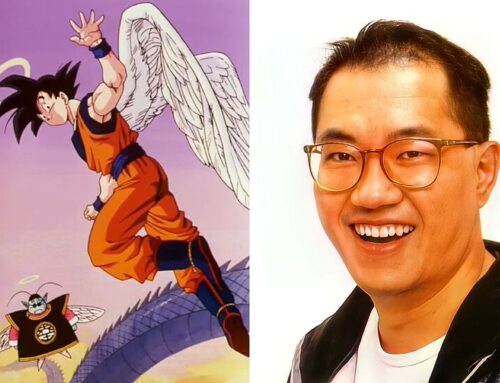A while back, I looked at YouTubers Rhett and Link and their “spiritual deconstructions.” They recently recorded follow-up episodes which have me thinking.
As someone obsessed with (and studying) psychology for the last few years, I was noticing their beliefs and attitudes towards their former communities.
It got me wondering: Why do we often feel resentment or otherwise negative attitudes towards our former communities (or other communities in general)?
The not-so-simple answer is because we are social and hierarchical creatures, and our social hierarchies all have gods and devils that guide our values, which direct our behaviour. The gods are supposed to reward us for success in those values; the devils are supposed to keep us from failing.
But when we switch hierarchies, our new gods often teach us to make a devil out of our old gods.
This has the unfortunate aftereffect of blinding us to the “babies in the bathwater,” so to speak, from our old hierarchies. Blindspots emerge in our thinking.
Case in point: Rhett one moment denounces the ideology in general, claiming those of his former social group (evangelical Christianity) are ideologues. Then, only moments later, in a soft-serve swirl of irony and hypocrisy, Rhett commits the sin he just condemned, espousing his new ideology.
I won’t get into the whole long conversation that there is around racism, but that’s where the conversation goes. In a nutshell, Rhett condemns the evangelical church as racist because of, well, ideology.
He tries to make it look legit, quoting the Public Religion Research Group. But you know your study has major issues when you simply determine whether or not someone is “racist” with three clearly biased questions. That’s one way to smell ideology by the way: vast oversimplification.
Social hierarchies and their gods
Rhett is right to challenge ideology. But how does he not realize that the new idea he espouses is, itself, ideological? Why does Rhett so easily accept this new ideology while thoughtlessly condemning his old one? Why the obvious hypocrisy and double-standard?
The unfortunate reality is that we’re all deeply inclined to believe things because of “groupthink” or, put more technically, because the prevailing thought of our social hierarchy deems it as “gospel.” That’s because hierarchies reward us for affirming our “gods” (values) and condemning our “devils” (that which opposes our values – including the “gods” of other social structures).
So put yourself in his shoes. Rhett and Link moved from the deep south to California years ago to follow their show biz dreams. With a new place comes new definitions of success and pressure to change your values. California is a very different place than North Carolina. Fast forward a few years, and Rhett isn’t religious anymore. He also has openly rejected his old communities, some of whom say “he was never a Christian.”
When a hierarchy of any kind rejects us, perhaps even if we leave it for personal reasons, we naturally experience resentment. This is especially so if you did not receive what you think you deserved from that hierarchy (hierarchies are, after all, supposed to reward you for succeeding in them and playing by the rules).
Rhett’s hypocrisy is because of his new social hierarchy position that affirms this different ideology and rewards him for it. They praise him for his apparent virtue in condemning the “racist” evangelical church, affirming his status in the hierarchy. That means more serotonin, happiness, and social position; hard things to forego.
So the question moves from “why would Rhett thoughtlessly embrace a new ideology while condemning another one?” to, “why wouldn’t he condemn the old hierarchy that rejects him in favour of his new hierarchy that will reward him?”
The way forward
While understandable, Rhett’s reaction is hypocritical, inconsistent, and, well, ideological.
Here’s what we can learn from Rhett’s failure: condemn ideology for the sake of ideology, as he says, but do it consistently. Challenge all of your ideas and the ideas of others, and be slow to embrace and extol new ones. In effect, this means you value truth over the quick-and-easy, oversimplified narratives that come in emotional packaging.
Second, don’t denigrate other social hierarchies unfairly, even (perhaps especially) when you feel hurt. Rhett has his reasons to no longer value what his old social structure valued. But his snarky attitude shows his cards; he’s hurt, and the hurt drives his words, not the truth.
Finally, take some time off technology. The internet and social media fuel defensiveness, and normalize reactive, thoughtless responses. They may actually make us more and more ideological because of feedback algorithms.
We are social and hierarchical creatures, and we’ll do whatever it takes (often subconsciously) to sustain that social status or dominance; even if it means thoughtless intellectual-moral dominance posturing. Exactly what is true, therefore, matters less to our psyches. That’s why we need to be careful, and why ideology needs to be embraced very, very cautiously.
What do you think? Have you seen Rhett and Link’s videos/podcasts? Comment below or hit me up on social media. Always appreciate the conversation – especially since conversation keeps us humble and diminishes the temptation to feed our inner ideologue!





